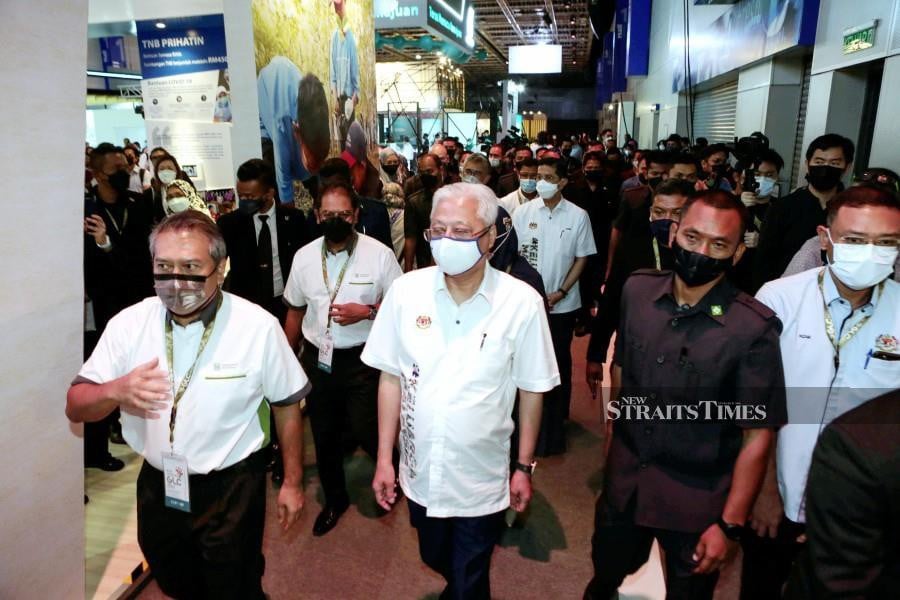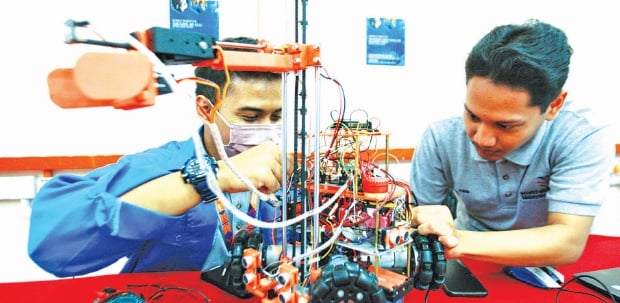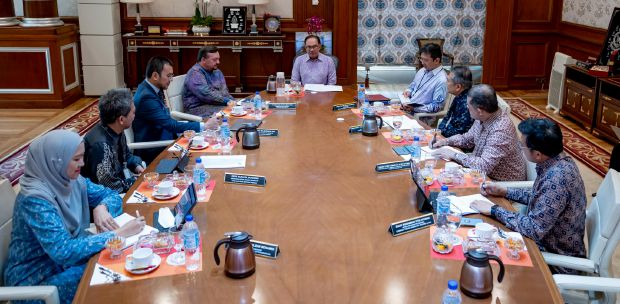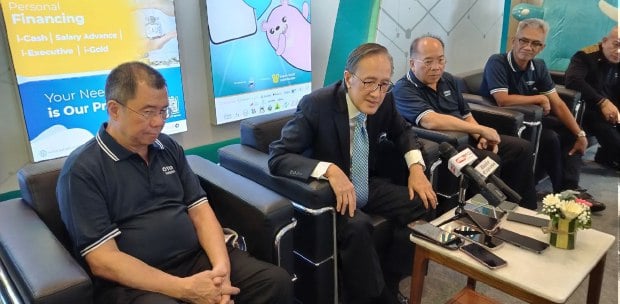KUALA LUMPUR: The government is committed to ensuring that all civil servants receive a total pay and allowance of at least RM1,500 per month.
Prime Minister Datuk Seri Ismail Sabri Yaakob said the private sector should follow suit to help workers deal with the challenges of rising living costs, particularly for low-income workers.
He said the government is also committed to ensuring that permanent staff of government-linked companies (GLCs) and government-linked investment companies (GLICs) receive the same minimum wage.
"It is hoped that other corporate companies will follow suit. In the 2022 Budget, the government announced that all listed companies are required to appoint at least one female director before June 1, 2023.
"In conjunction with the recent International Women's Day, we should continuously recognise the role of women as important leaders and contributors to the socio-economic progress and prosperity of the country.
"Therefore, in line with international best practices, each GLC must achieve at least 30 per cent female participation as board members by the annual general meeting (AGM) in 2023," he said in a speech at GLC 2022 Open Day Launch ceremony, today.
Also present was Finance Minister Tengku Datuk Seri Zafrul Tengku Abdul Aziz.
Ismail Sabri said the country's goal of achieving zero carbon emissions by 2050 was announced in the 12th Malaysia Plan (12MP). The government, he said, had also announced the country's objective to achieve zero carbon emission by 2050 in 12MP.
He said in realising this aspiration, all GLCs and GLICs are advised to have medium-term targets and zero carbon targets by 2050.
He said the government hopes this policy will provide continued benefits and well-being to the people.
Ismail Sabri also said GLCs and GLICs are important in achieving the vision of a high-income nation by 2025.
"GLCs' involvement in services such as energy supply, petrol, water, logistics, telecommunications have enabled us to diversify the economy from agriculture and natural resources to industrial and technology-driven sectors such as semiconductors.
"In fact, this has been our solution against the 1997 to 1998 Asian financial crisis and the 2008 global financial crisis.
"GLCs and GLICs also play an important role in developing and sustaining the country's socio-economic progress.
"Entities such as the Employees Provident Fund (EPF), Khazanah Nasional and Petroliam Nasional Bhd (Petronas) have greatly helped the country build critical infrastructure and achieve its aspirations.
"For example, GLCs and GLICs helped develop one of the world's largest group of airport operators (Malaysia Airports), produce regional champions such as the Maybank Group Bhd, CIMB Group Bhd and Axiata Group Bhd, and developed important national corridors such as Iskandar Malaysia," he said.
Ismail Sabri said GLCs and GLICs have contributed about RM445 billion or 25 per cent of Bursa Malaysia's market capitalisation, providing direct employment to half a million Malaysian and the most important contributor in the country's supply chain.
He said it is also important to achieve the aspirations of developed countries through the 12MP in the country's socio-economic development as well as the need to restructure government policies in increasing the resilience of the people and Malaysia's competitiveness in the world.
"The 12MP reflects the role of GLCs and GLICs in expanding export markets, assisting the enterprise community and venturing into new strategic sectors such as the industrial revolution 4.0 which is based on the use of public and data analysis.
"This involves a strategic plan including the implementation of mentoring programs by GLCs to small and medium professional practitioners in the services sector, the expansion of an inclusive business model that encourages micro, small and medium enterprises (SMEs) in the GLC supply chain as well as green financing and investment for sustainable and climate-friendly development projects, including through public-private partnerships.
"Besides that, GLCs are also one of the main drivers in the success of various government initiatives through the 2022 Budget such as the Malaysian Family Work Guarantee worth RM4.8 billion and the SemarakNiaga Keluarga Malaysia program worth RM40 billion," he said.
In 2013, several GLCs and GLICs joined efforts to establish a GLC/GLIC Disaster Response Network (GDRN) aimed at coordinating the provision of social assistance and reconstruction after natural disasters or catastrophes.
Between 2013 and 2016, the network has contributed to rehabilitation and reconstruction operations, particularly for flood victims in Kelantan, Pahang and Johor.
Since 2020, the GDRN has successfully helped more than 450,000 people affected by the Covid-19 pandemic and floods with various types of assistance worth RM327 million, including government matching grants in excess of RM55 million.
"The government is aware of the need to improve the potential of the GDRN network so that it is responsive and more proactive in building the capacity and resilience of Malaysian families.
"In conjunction with this event, I also announced that the GDRN is now known as a GLC for the People and the Nation, with an expanded scope from the existing "humanitarian network" to the network of "knowledge" and "prosperity", he added.





